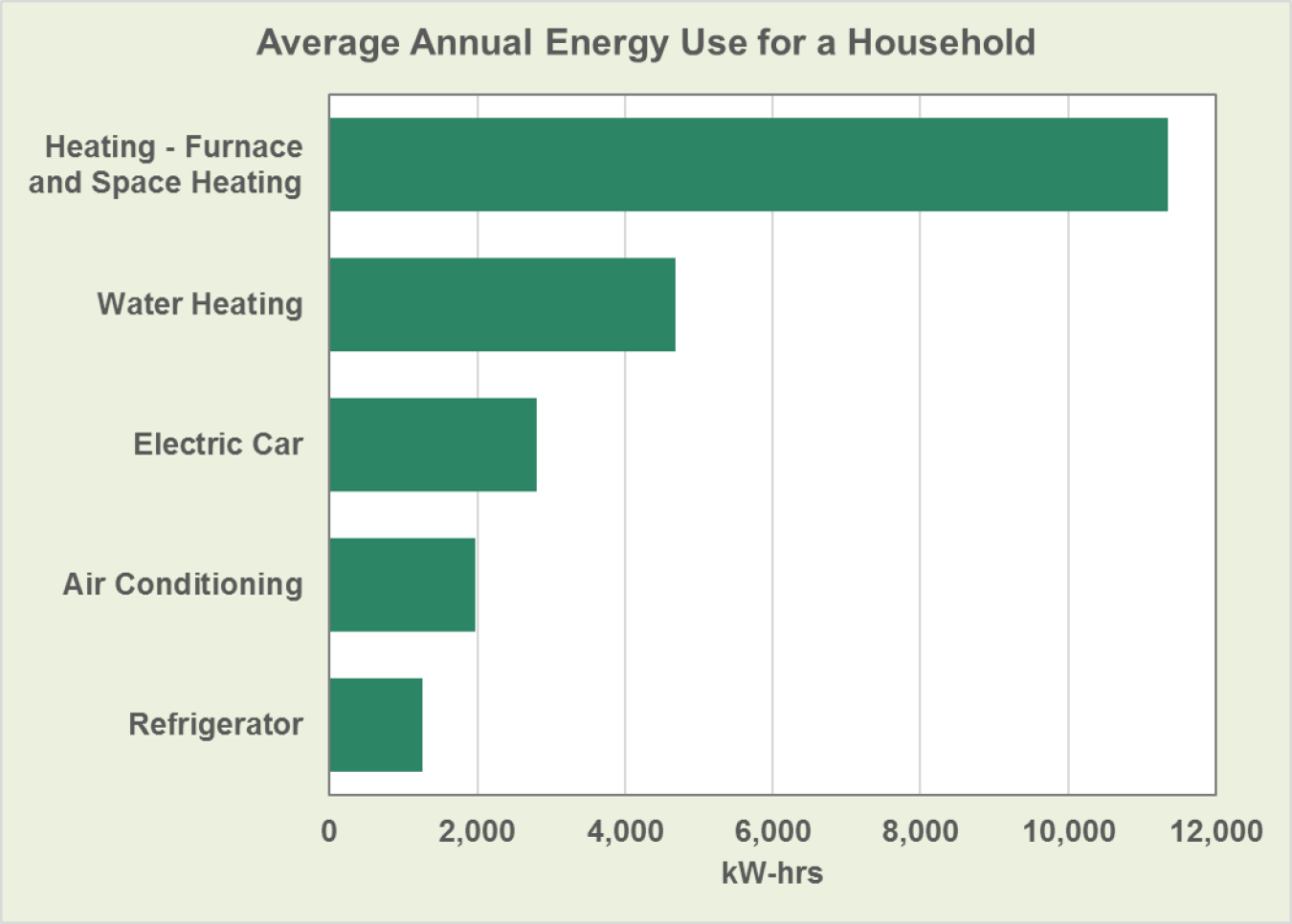Charging an electric vehicle consumes less energy than several common household appliances.
September 11, 2017SUBSCRIBE to the Fact of the Week
Charging an electric vehicle consumes less energy than several common household appliances. Annual energy consumption for a typical household shows that home heating consumes by far the most energy (11,300 kW-hrs) followed by water heating (4,700 kW-hrs) and charging an electric car (2,800 kW-hrs). Based on average driving habits and consumption rates for the Nissan Leaf, charging an electric car consumes just over twice as much energy as a refrigerator which consumes about 1,300 kW-hrs annually. While an electric vehicle adds to household electricity usage, it eliminates the need to purchase gasoline for that vehicle which would cost considerably more based on national average gasoline and residential electricity prices.
Average Annual Energy Use for a Household, Selected Appliances

Notes:
The electric car data are based on a 2013 Nissan LEAF driven 9,697 miles per year which was the average annual mileage of a Nissan LEAF in the EV Project.
For comparison, a 2013 Nissan LEAF is rated at 115 MPGe (miles per gallon equivalent) and a conventional 2013 Nissan Versa is rated at 35 MPG. This results in a cost of 3.8 cents per mile for the LEAF and 6.7 cents per mile for the Versa at 13 cents per kW-hr and $2.35 per gallon of gasoline.
Data in the 2009 Residential Energy Consumption Survey are presented in British thermal units (Btu) and represent site or delivered energy (1 kW-hr = 3,412 Btu).
Sources:
Electric Car - annual miles driven by a Nissan LEAF: Idaho National Laboratory, Plugged In: How Americans Charge Their Electric Vehicles, Figure 8. Electricity used per 100 miles for a Nissan Leaf: U.S. Department of Energy and U.S. Environmental Protection Agency, Fueleconomy.gov, Compare Side-by-Side (Fuel economy).
All else - U.S. Energy Information Administration, 2009 Residential Energy Consumption Survey (latest available consumption data), Table CE3.1.
Note on vehicle fuel economies - U.S. Department of Energy and U.S. Environmental Protection Agency, Fueleconomy.gov, Compare Side-by-Side.

